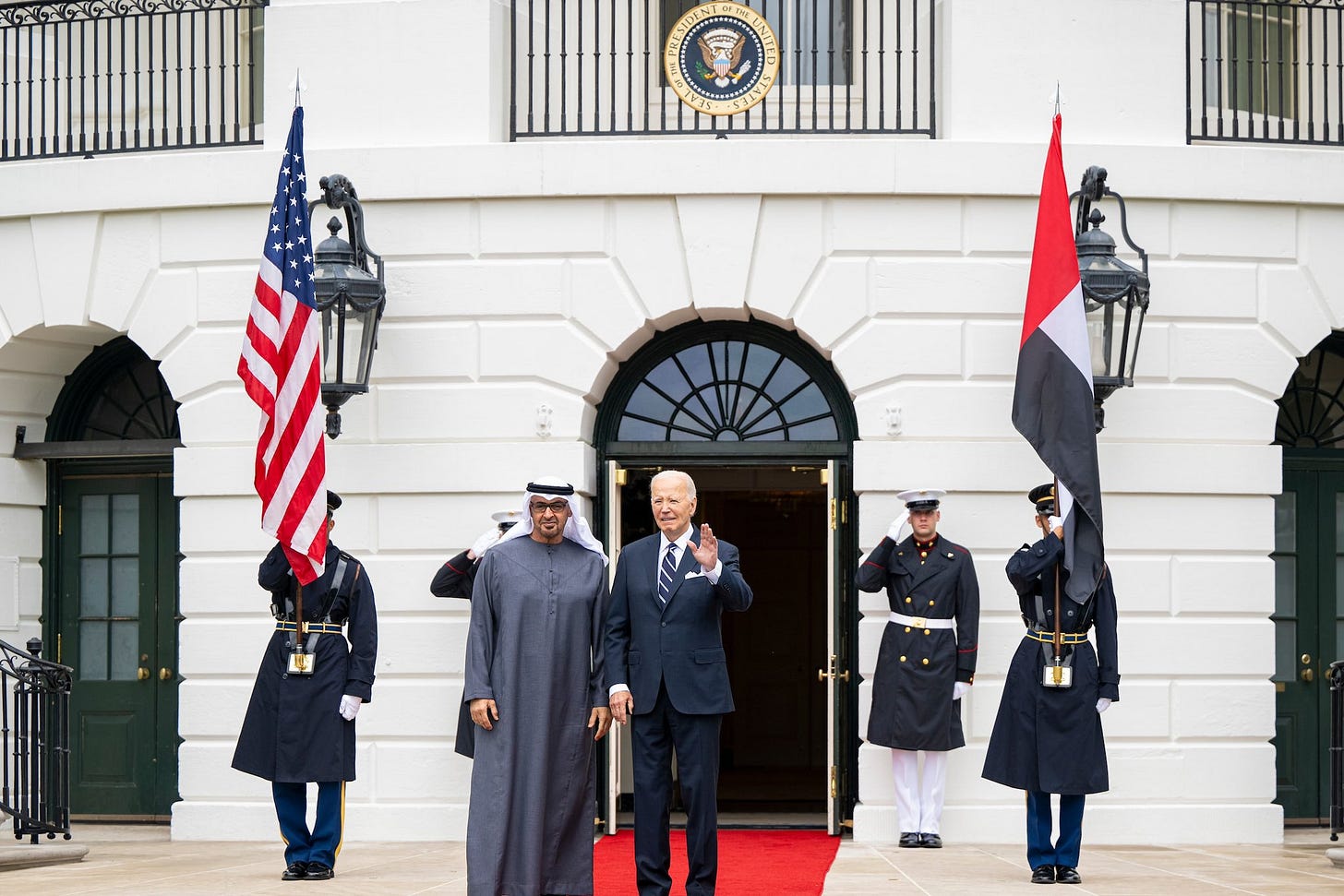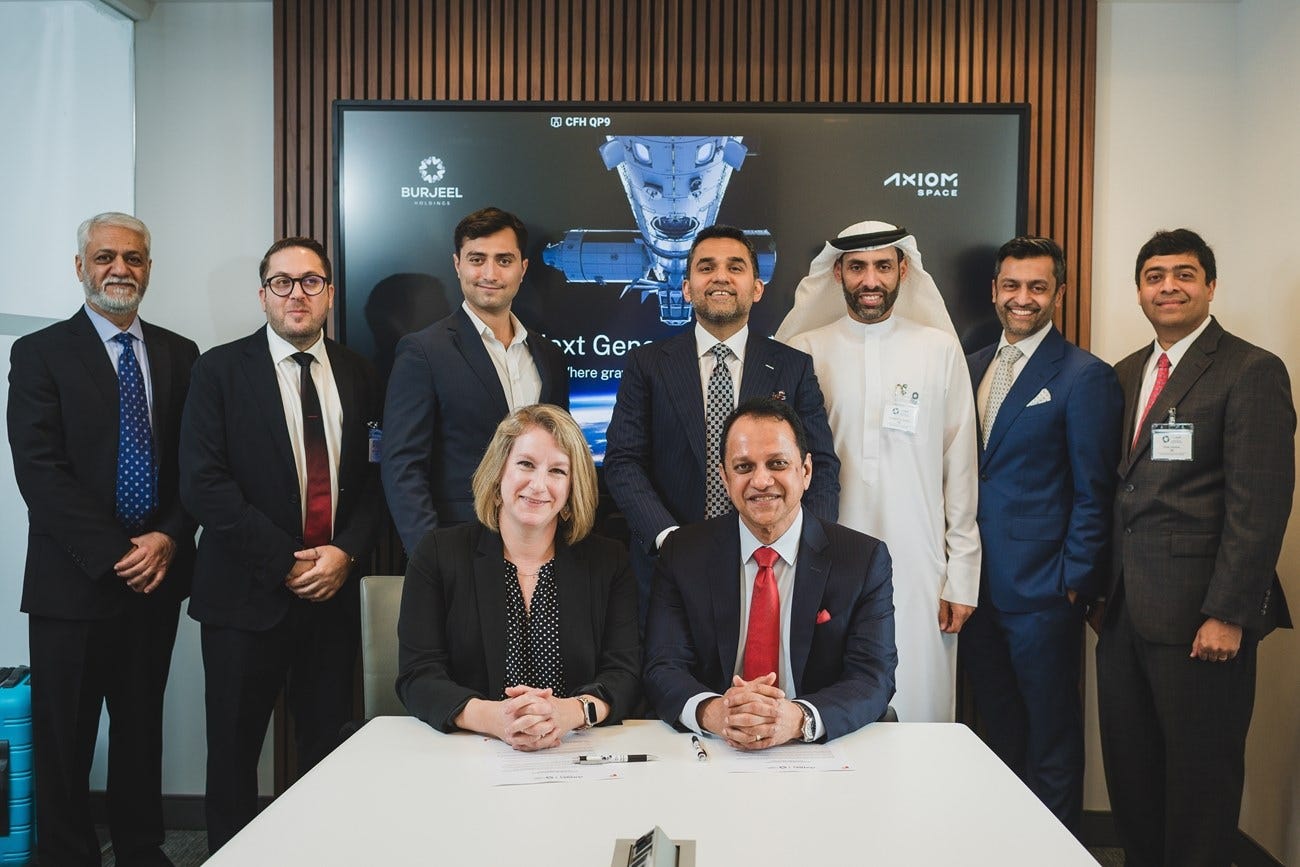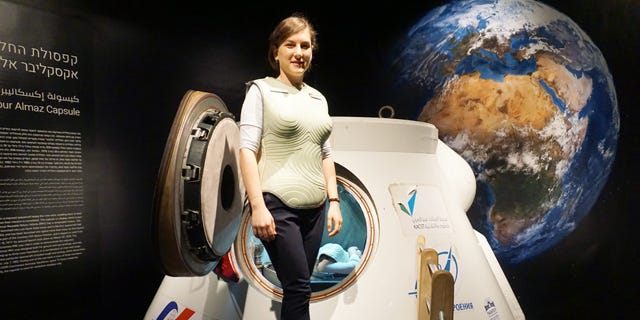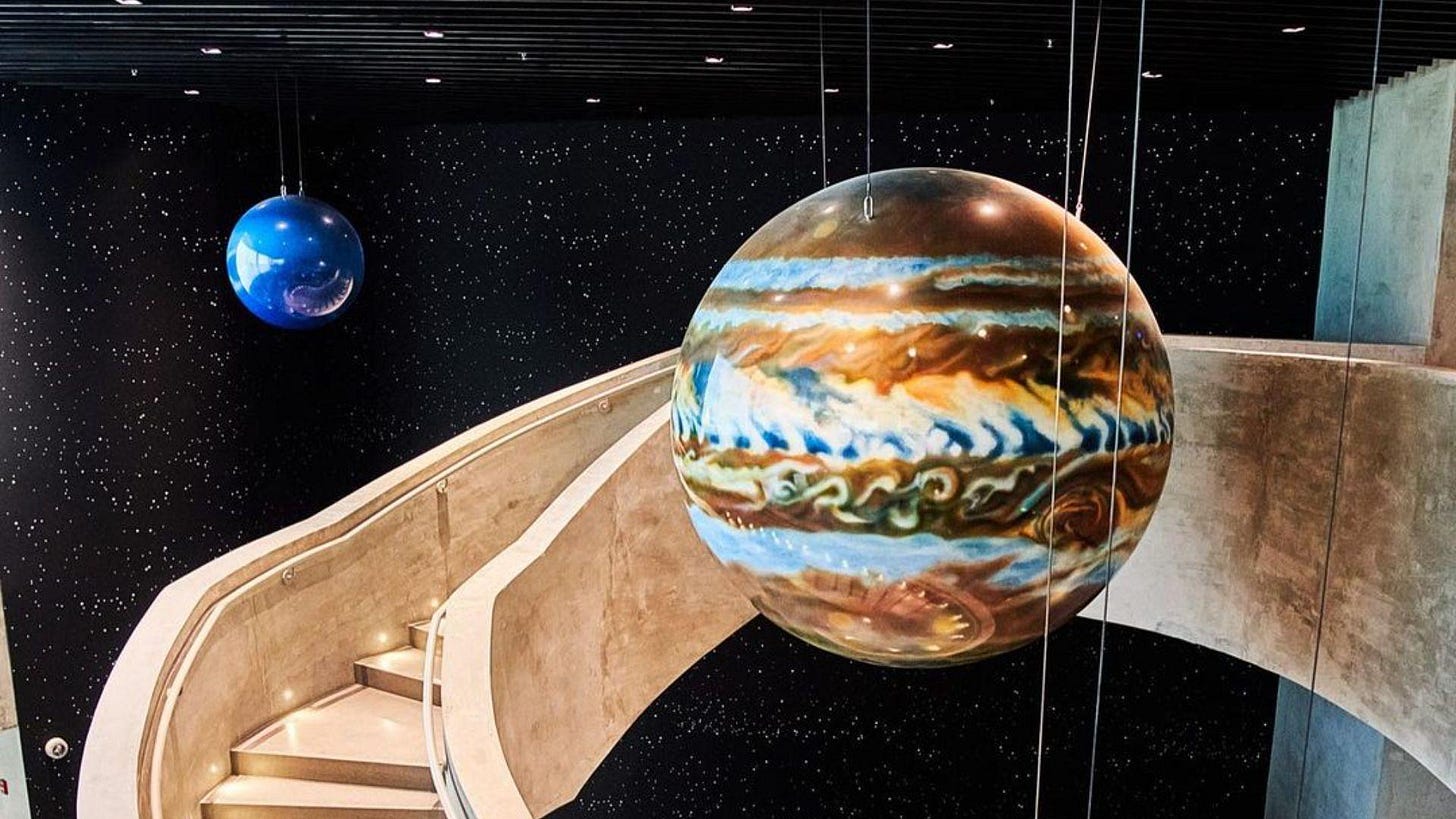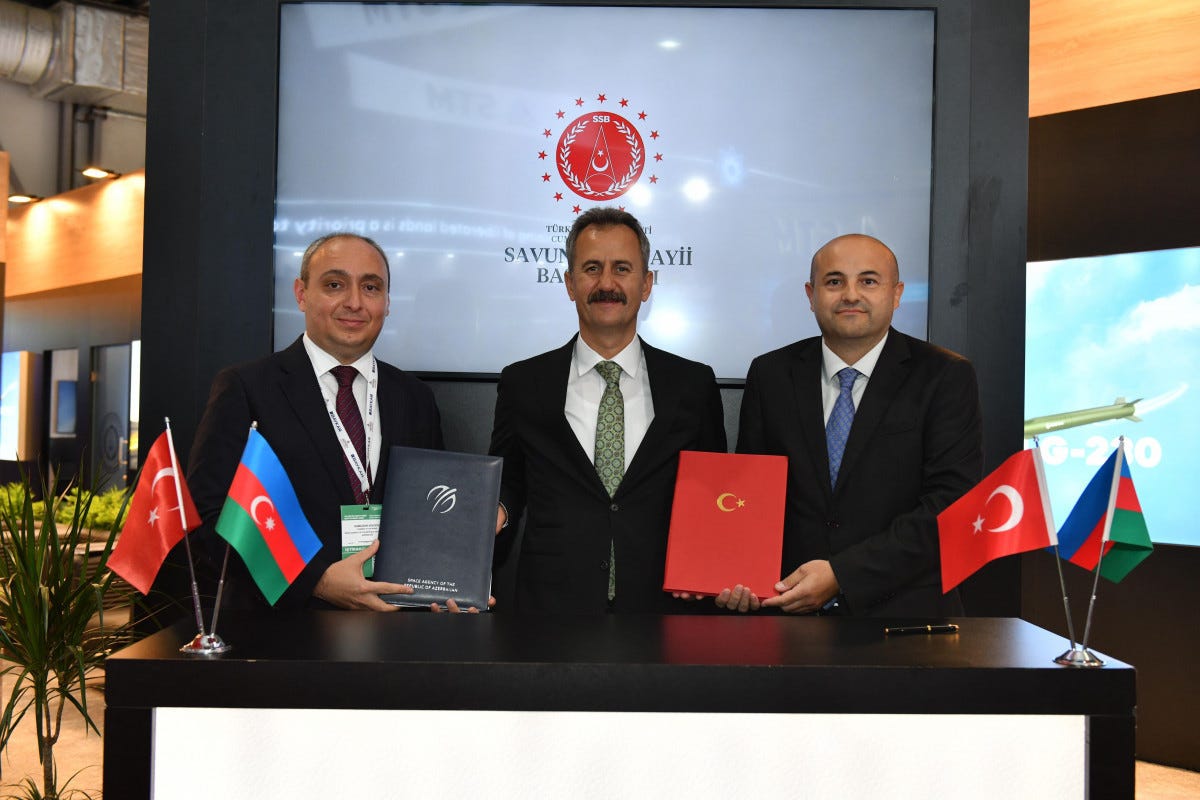Middle East Space Roundup: 23 to 29 September 2024
A summary of all the space news in the Greater Middle East over the past week, brought to you by AzurX
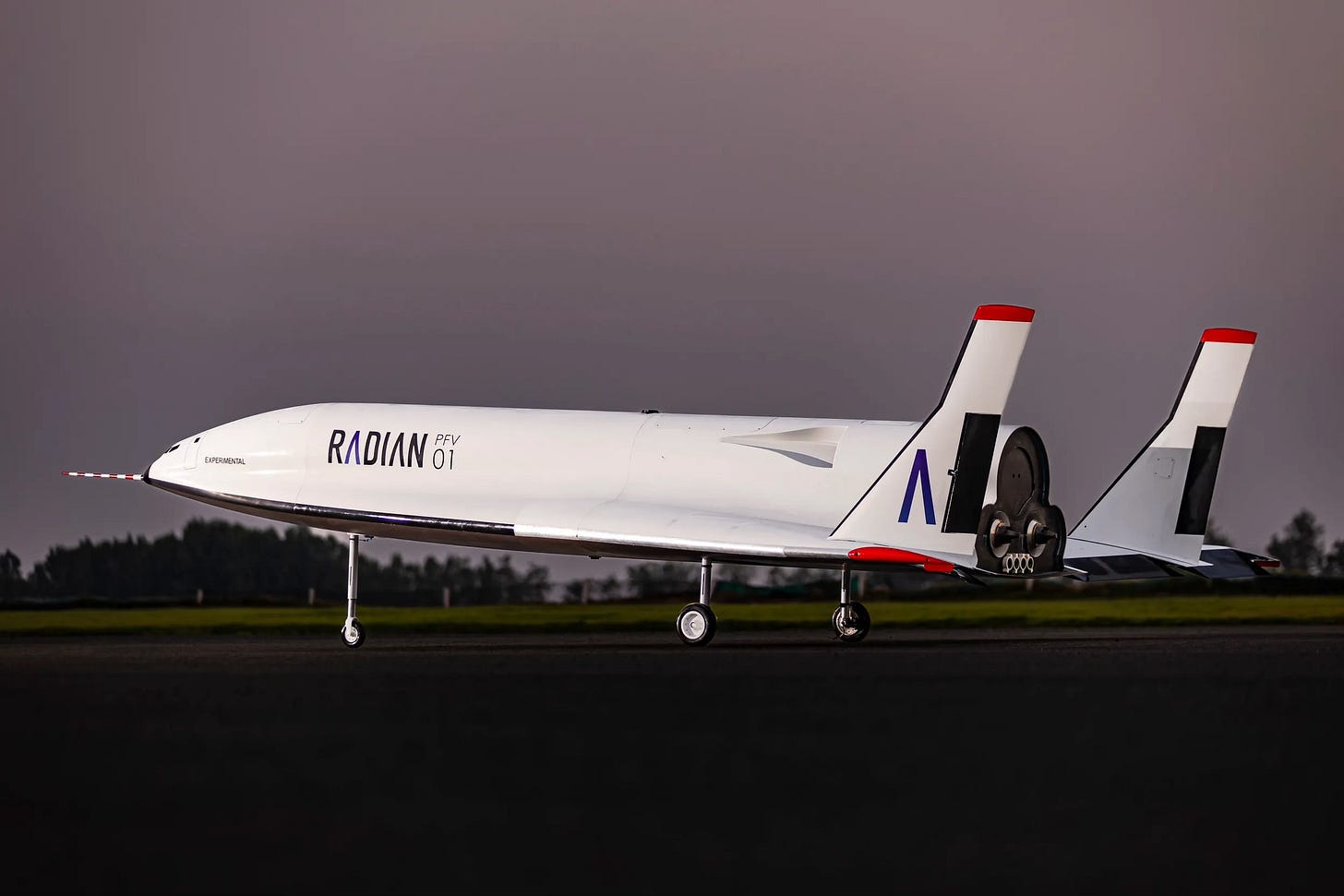
The following are the major space developments in the Greater Middle East region tracked by Middle East Space Monitor over the past week:
UAE Space Developments
U.S. Spaceplane Company Radian Aerospace Seeks to Make its Home in the UAE
Ambitious plans to launch space flights from Abu Dhabi are advancing, with Radian Aerospace, a Seattle-based company, testing its innovative spaceplane, Radian One, in the UAE capital. This fully reusable, horizontally launched vehicle is designed to carry passengers and cargo to low-Earth orbit, with a goal of conducting its first sub-orbital test flight by 2028, followed by an orbital flight in 2029 and subsequent commercial operations. Radian One differentiates itself from competitors like Virgin Galactic by utilising a rocket-powered rail sledge for takeoff, allowing it to operate from traditional runways. Intensive testing protocols, including computational fluid dynamics and wind tunnel tests, are being conducted to ensure the vehicle's performance and safety. The collaboration has the potential to overcome past barriers related to International Traffic in Arms Regulations (ITAR) by initially testing non-sensitive technologies, and involving U.S. teams for more complex components as commercial operations commence. The UAE is increasingly recognised as a global hub for private space initiatives, with additional projects underway in neighbouring Saudi Arabia and Oman, indicating a broader regional commitment to advancing space exploration and tourism.
UAE’s MBZ Visit to U.S. Results in Landmark Space Cooperation Commitment
During Sheikh Mohamed bin Zayed Al Nahyan's first official visit to the United States as President of the UAE, he and President Joe Biden reaffirmed the enduring strategic partnership between the two countries. The leaders discussed enhancing cooperation in key sectors, including advanced technology, investments, and defence, while promoting peace and stability across the Middle East. They highlighted significant achievements in U.S.-UAE relations, including robust bilateral trade exceeding $40 billion annually and collaborative initiatives in clean energy and artificial intelligence, such as the recent partnership between Microsoft and UAE’s Group 42 (G42). The leaders also addressed the importance of regulatory frameworks for emerging technologies, emphasising a commitment to the responsible deployment of AI and deepening cooperation in space exploration, illustrated by ongoing projects like the Emirates Mission to the Asteroid Belt and agreements with NASA for the Gateway lunar project. This visit is expected to pave the way for strengthened economic and cultural ties, fostering innovative partnerships that align with both countries' long-term goals.
FADA: UAE’s Sovereign Space Technologies Manufacturer Starts Business
UAE’s EDGE Group, a leading advanced technology and defence group, has launched its new space company, FADA, which means "space" in Arabic. This initiative aims to enhance EDGE's global competitiveness and establish its leadership in space capabilities by developing sovereign space technologies within the UAE. FADA is committed to building a self-reliant space sector through national and international partnerships, focusing on the Transfer of Technology (ToT) and Transfer of Knowledge (ToK). The new company will contribute significantly to the UAE's knowledge-based economy and economic diversification goals by creating state-of-the-art facilities for satellite systems, including Synthetic Aperture Radar (SAR), Optical (EO), and Infrared (IR) payloads, along with cybersecurity services. This launch aligns with EDGE’s strategic vision to pioneer advanced technologies and develop a skilled workforce in the space sector. FADA's establishment follows EDGE’s recent appointment as the prime contractor for the UAE Space Agency's 'Sirb' SAR programme, which aims to launch a constellation of three SAR satellites by 2026, marking a significant step in the UAE's space capabilities.
UAE’s Yahsat and Bayanat Merger Completed: Space42 Starts Business on 1 October 2024
UAE’s Yahsat and Bayanat announced the completion of their merger, set for 1 October 2024. Following the close of trading on 30 September 2024, Yahsat shares will be de-listed from the Abu Dhabi Securities Exchange (ADX), with all Yahsat assets and obligations transferring to Bayanat in exchange for newly issued shares allocated to Yahsat shareholders. Post-merger, Bayanat will rebrand as Space42 and adopt a new trading symbol. This merger aims to establish Space42 as a leading AI-powered space technology entity in the Middle East and North Africa region, integrating Bayanat’s geospatial AI capabilities with Yahsat’s satellite communications expertise. The combined strengths of these two companies are expected to drive innovative space-based services, significantly benefiting regional societies and economies.
UAE’s Burjeel Holdings Partners with Axiom Space to Advance Medical Research in Space
Burjeel Holdings, a UAE health service provider, has announced a long-term collaboration with Axiom Space, based in Houston, Texas, to advance scientific research and test new medical technologies in microgravity. A Memorandum of Understanding was signed at the Burjeel Institute for Global Health in New York, marking the start of this initiative aimed at expanding access to space for medical advancements. The partnership will focus on deploying medical technologies in space to study the effects of microgravity on human health, including its impact on biomarkers, drug quality, and remote healthcare services. Axiom Space astronauts will utilise these technologies during their upcoming missions, including Axiom Mission 4, set for spring 2025. Both parties emphasised that this collaboration not only enhances medical innovation but also aligns with the UAE's broader vision for space exploration, potentially leading to improved healthcare solutions for patients both locally and globally. This initiative underscores the growing intersection of healthcare and space technology, with the potential to yield significant advancements in medical treatment methodologies.
UAE’s Hazza Al Mansouri Reflects on UAE’s First Spaceflight Five Years On
On 25 September 2019, Major Hazza Al Mansouri made history as the UAE's first astronaut, embarking on an eight-day mission to the International Space Station (ISS) that symbolised the country's aspirations in space exploration. Reflecting on his transformative journey five years later, which included conducting scientific experiments in microgravity and engaging with students in the UAE, Maj. Al Mansouri is now working at NASA's Johnson Space Center to help develop the Gateway, a lunar-orbiting station essential for future missions to the Moon and Mars. The UAE has committed to delivering an airlock for the Gateway, with plans for an Emirati astronaut to join the mission. Since Al Mansouri's landmark flight, the UAE's space programme has gained momentum, achieving significant milestones such as the successful launch of the Hope Probe to Mars in 2020 and the upcoming MBZ-Sat satellite launch, set for November 2024. The UAE is also fostering a sustainable astronaut programme, with four members now in its corps and an emphasis on building a robust private space sector to complement government initiatives. As the UAE continues to expand its role in global space exploration, it aims to inspire future generations and enhance its technological capabilities.
Informa’s Global Aerospace Summit Held in Abu Dhabi, UAE
The Global Aerospace Summit, organised by Informa from 25-26 September 2024 in Abu Dhabi, UAE, solidified its position as a premier platform for high-level dialogue and strategic insights in the aerospace, space, and defence sectors. Now in its seventh edition, the Summit attracted government officials, industry leaders, and academics dedicated to advancing these fields. Key themes include aerospace technology, policy, and investment, with discussions focusing on emerging technologies such as artificial intelligence, electric propulsion, and satellite broadband connectivity. The event emphasised the significant role of the aerospace industry in economic growth, with the space economy projected to reach $1.8 trillion by 2035. Notable speakers included leaders from various space agencies and organisations, while initiatives like NextGen Leaders aimed to foster talent development in alignment with the UAE's Emiratisation objectives. The Summit also features VISTA, a dedicated area for global start-ups to showcase innovations. Sponsorship from major companies such as EDGE, Airbus, and NMI Engineering highlightsd the collaborative spirit driving advancements in the aerospace sector. Overall, the Summit served as a crucial forum for sharing knowledge, forging partnerships, and shaping the future of aerospace.
Saudi Arabia Space News
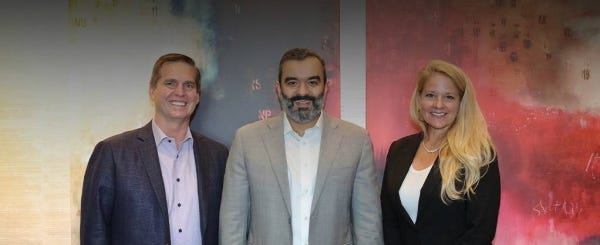
Saudi Arabian Minister Meets With SpaceX to Discuss Expanding Space Partnership
Saudi Arabia’s Minister of Communications and Information Technology, Eng. Abdullah Al Swaha, recently met with SpaceX CEO Gwynne Shotwell and other executives to explore opportunities for expanding their strategic partnership in space exploration and technology. This engagement is part of the Minister's visit to the United States and aligns with the Kingdom's broader objectives to enhance its space sector and infrastructure. Key topics of discussion included current and future advancements in space technology, as well as initiatives aimed at fostering human capital development and attracting investment into Saudi Arabia's burgeoning space industry. The visit underscores the Kingdom's commitment to advancing its role in the global space arena and enhancing collaboration with leading space enterprises.
Saudi Arabia’s Industry Minister Visits United States to Bolster Kingdom’s Space Sector
Saudi Minister of Industry and Mineral Resources Bandar Al Khorayef's recent visit to JetZero and SpaceX in California highlights the Kingdom's commitment to advancing its aviation and space industries. During discussions with JetZero's founder, Mark Page, Al Khorayef explored potential partnerships aimed at developing local supply chains for aviation components and leveraging Saudi Arabia's mineral resources to enhance manufacturing capabilities. JetZero, known for its innovative "Blended Wing Body" aircraft design that significantly improves fuel efficiency and reduces emissions, aligns with Saudi Arabia’s National Industrial Strategy, which emphasises sustainable aviation. Additionally, meetings with SpaceX CFO Brett Johnson focused on fostering the space sector and enhancing supply chain development, showcasing the Kingdom's strategic initiatives to attract high-quality investments and technological advancements. The National Industrial Strategy also aims to launch the first Saudi satellite and incorporate cutting-edge technologies, positioning Saudi Arabia as a competitive player in the global aviation and space markets while strengthening bilateral ties with the United States.
On Saudi Arabia’s 94th National Day, U.S. Lauds Space Partnership
As Saudi Arabia celebrates its 94th National Day, U.S. Ambassador to the Kingdom Michael A. Ratney writes in Arab News that the longstanding partnership with the United States is a dynamic and evolving relationship that began shortly after the Kingdom's unification in 1932. Initially focused on energy and security, the U.S.-Saudi ties have expanded to encompass diverse areas such as business, technology, education, arts, culture, space, and sports. This evolution reflects both countries' commitment to innovation and entrepreneurship, fostering economic growth and creating opportunities for shared learning and skill development. The partnership has been particularly fruitful in the space sector since 1985, culminating in a recent framework agreement on space exploration that underscores both countries' dedication to pushing technological boundaries. The ongoing collaboration aims to leverage American expertise in support of Saudi ambitions, promising advancements and job creation for both countries. The strength of this relationship is evident in multifaceted cooperation, from government interactions to grassroots engagement, and is further strengthened by a shared commitment to resolving regional conflicts. As the U.S.-Saudi partnership continues to thrive, it remains anchored in mutual respect and shared interests, paving the way for a prosperous future.
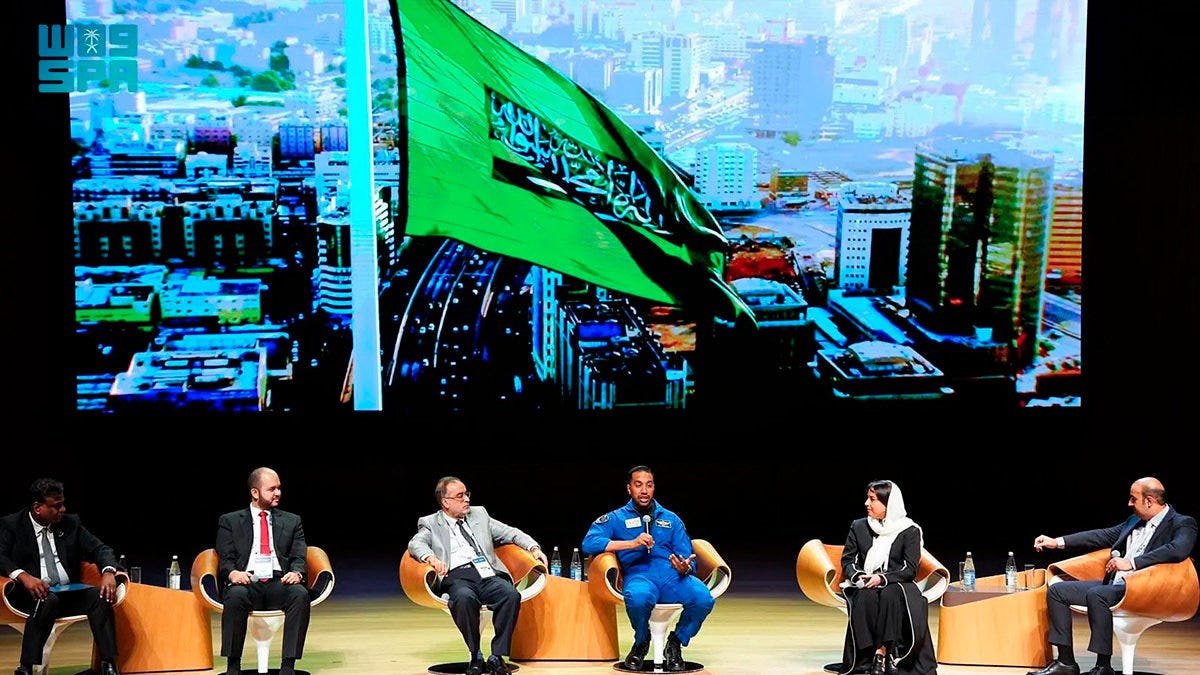
Saudi Arabia’s Crown Prince Endorses Neo Space Group’s Strategic Plan
Saudi Arabia's Crown Prince Mohammed bin Salman has endorsed the strategic plan of Martijn Blanken, the newly appointed CEO of Neo Space Group (NSG), which aims to establish the company as the national champion in the Kingdom's burgeoning space sector. Formed in May 2024 by the Public Investment Fund (PIF), NSG seeks to enhance Saudi Arabia's global influence in space by accelerating investments in commercial satellite operations and expanding capabilities in navigation, secure communications, and the Internet of Things (IoT). Blanken, leveraging over 25 years of international experience in telecommunications, has outlined a vision that includes significant investment in geospatial services, marked by NSG's recent authorisation to create a platform for weather and environmental data processing. The acquisition of Taqnia Space further bolsters NSG's capabilities in satellite imagery analysis and government support, emphasising its intent to lead in both national and regional markets. With PIF's substantial financial resources, NSG is also poised to launch a venture capital fund to acquire promising space-related companies, with ambitions to enhance satellite infrastructure and technologies by 2025. This initiative aligns with Saudi Arabia's Vision 2030, which targets a growth in the space sector's turnover from less than $500 million to $2.2 billion by 2030, reflecting the Kingdom's commitment to economic diversification beyond fossil fuels.
Saudi Arabia’s Neo Space Group Plants its Flag in the Kingdom’s Space Sector
In May 2024, Saudi Arabia's Public Investment Fund (PIF) launched Neo Space Group (NSG) to enhance the Kingdom's capabilities and position in the global space economy. Newly appointed CEO Martijn Blanken outlined NSG's vision to serve as the national champion for commercial satellite operations, focusing on satellite communications, navigation, Earth observation, and satellite management services. Blanken emphasised NSG's commitment to innovation and economic diversification in alignment with Saudi Vision 2030, while distinguishing NSG's role from other entities like the Saudi Space Agency, which targets non-commercial activities. Short-term goals include executing a solid operational plan and securing wins, exemplified by NSG's recent bid for an Earth observation wholesale platform license. Long-term aspirations involve establishing NSG as a leading global satellite technology provider, leveraging PIF’s financial backing to drive growth through building, partnering, and acquiring. The company plans to implement advanced technologies, including AI in geospatial services, to enhance satellite-based connectivity. NSG aims to support local startups through its venture capital fund, fostering innovation and talent development in Saudi Arabia's burgeoning space sector.
Israel Space Developments
Israel’s Commcrete Introduces ‘The Flipper’ Direct-to-SATCOM Radio Device
The Flipper, a compact and portable device developed by Israel’s Commcrete, is revolutionising radio-based communication, particularly for security and emergency forces. This innovative solution enables quick and stable connectivity to satellite communication without the need for ground infrastructure, addressing common challenges faced by radio systems, such as communication loss due to complex terrain or damaged infrastructure. By integrating seamlessly with existing radio systems, the Flipper replaces the radio’s antenna, transforming it into a satellite communication network using L-BAND frequencies that connect directly to geostationary satellites. Unlike traditional systems that require precise antenna alignment and extensive ground setups, the Flipper offers a lightweight, user-friendly alternative that operates using the existing radio battery, thereby minimising operational complexities and costs. Available in various ruggedised versions for different environments, the Flipper highlights the shift towards effective satellite communication in challenging conditions, enhancing the capabilities of first responders and public safety agencies.
Israel Company StemRad’s Radiation Protection Technology Proves Useful in Artemis-1 Moon Mission
Recent research published in Nature has highlighted the radiation levels measured during the Artemis 1 mission, which tested NASA's Orion spacecraft on an uncrewed flight around the Moon. The study, which involved collaboration between the Israeli-American company StemRad, the Israel Space Agency, the German Space Agency (DLR), and NASA, monitored radiation through various sensors and life-sized mannequins, Helga and Zohar—one without protection and one equipped with StemRad's protective vest. The findings indicated that radiation levels were significantly lower than those recorded during the Apollo missions, largely attributed to the Orion spacecraft's effective shielding. Dr. Christine Hellweg from DLR confirmed that the spacecraft would remain safe during solar storms, with a designated refuge area providing additional protection. The study suggests that similar shielding could be adequate for future Mars missions, projecting radiation levels that would keep astronaut exposure within NASA’s safety limits. Although the current paper did not evaluate the effectiveness of the AstroRad vest, further data on its performance is expected soon, underscoring the importance of radiation protection as humanity ventures deeper into space exploration.
Qatar Space News
Interview: Qatar’s Es’hailSat Planning to Acquire New Communication Satellites
In an interview with Alex Cresniov in SpaceTech in Gulf Region, Mr. Jarod Lopez, Executive Director of Marketing & Business Development at Qatar’s Es’hailSat, outlined the company's strategic initiatives and contributions to the satellite industry. Es’hailSat, established in 2010 and based in Doha, operates two geostationary satellites, Es’hail-1 and Es’hail-2, and provides advanced satellite services to various sectors, including broadcasting and telecommunications. The company supports major broadcasters and enhances Qatar's telecommunications infrastructure, aligning its goals with Qatar's National Vision 2030. Mr. Lopez emphasised the importance of satellite communication as a critical infrastructure, noting plans for the launch of new satellites and the use of Ku-band and Ka-band frequencies to meet diverse customer needs. Es’hailSat’s teleport facility offers a range of services, including managed satellite communication solutions, which are crucial for maintaining robust connectivity. The company remains optimistic about the direct-to-home (DTH) television market's future, despite the rise of OTT services, and is committed to sustainability through innovative technologies and corporate social responsibility initiatives, such as educational outreach and environmentally friendly practices in its operations.
Qatar Hosts 4th Edition of the Katara Space Science Programme
The fourth edition of the Katara Space Science Programme (KSSP) technology took place at the Al Thuraya Planetarium in Katara, Qatar, organised by Katara – the Cultural Village in collaboration with MAPS International. This three-day event enhanced awareness and education in space sciences, featuring discussions and insights from prominent experts in the field. Notable speakers included Dr. Essam Heggy from the University of Southern California and NASA’s Jet Propulsion Laboratory, who shared his experience in significant Mars research, particularly in detecting water beneath the planet's ice layers. Dr. Lalitha Ramachandran from the Indian Space Research Organisation (ISRO) discussed India’s historical commitment to space exploration since 1962, while Dr. K Ramachandran offered insights into key missions and space vehicles, including the Hubble and James Webb space telescopes. The programme is further enriched by the "Cosmic Canvas – Space Art" exhibition, showcasing original artworks from NASA and other visual creations, which will be on display until 18 October 2024. This edition of KSSP emphasises the importance of interdisciplinary dialogue in advancing knowledge and fostering interest in space exploration.
Iran Space Developments
Official: Iran Plans to Launch at Least Five Satellites by March 2025
The Iranian Space Agency, led by Hassan Salarieh, has announced plans to launch between five to seven satellites by the end of the current Iranian year (20 March 2025). In an interview with Mehr News Agency, Salarieh indicated that the agency would collaborate with the Islamic Revolutionary Guard Corps (IRGC) Aerospace Force for sub-orbital launches. The upcoming launches include foreign collaborations, specifically the Tolo-3 and Zafar-2 satellites, which will utilize international launch services. The domestically developed Kosar satellite, constructed by the private sector, is also scheduled for launch this year. This initiative reflects Iran's ongoing efforts to enhance its space capabilities and demonstrates a strategic push toward expanding its satellite infrastructure.
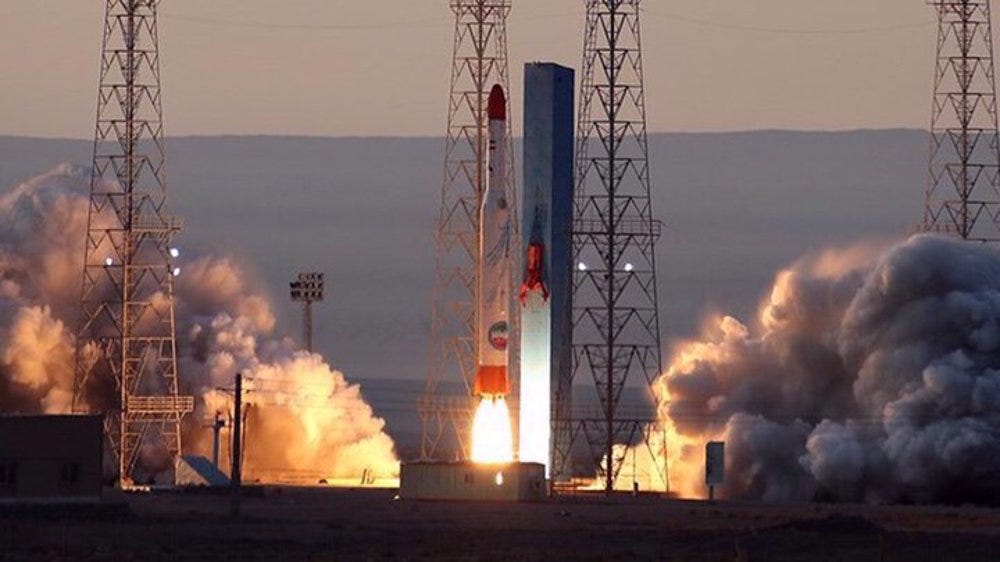
Report: Iran’s Space Sector a National Priority
Iran has prioritised the aerospace sector within its comprehensive scientific roadmap, recognising its critical role in advancing other key technologies and enhancing national security. As the self-proclaimed leading country in aerospace science among Islamic countries and the Middle East, Iran has made significant strides in satellite design, construction, and launch capabilities, bolstering national pride and global standing. The country’s geographic advantages and a pool of skilled talent from reputable universities position it well for growth in this domain. Since launching its first domestically produced satellite, Omid, in 2009, Iran has developed a complete space cycle, demonstrating the ability to manufacture satellites and their launch vehicles. The Iranian Space Agency's long-term vision includes establishing a satellite constellation named after General Qassem Soleimani, aimed at providing dual-use telecommunication services. Recent successful launches, including the Chamran-1 research satellite and plans for additional satellites by March 2025, underscore Iran's commitment to becoming a regional hub in space technologies. As the country accelerates its aerospace capabilities, the integration of private sector partnerships is expected to further enhance innovation and operational efficiency in this vital industry.
Other Regional Space News
Russia Makes Significant In-Roads into Tunisia’s Space Programme
In The National Interest, Anna Borshchevskaya and Sabina Henneberg write that as Russia continues to navigate the geopolitical landscape shaped by its war on Ukraine, it is quietly expanding its space collaboration with countries in the Middle East, particularly Tunisia. This partnership, which predates the Ukraine invasion, includes plans to launch satellites and even send Tunisia's first female astronaut to the International Space Station. Despite recent delays and challenges, such as the lack of satellite launches and controversies surrounding the astronaut programme, the collaboration serves as a strategic tool for Russia to enhance its influence in the region and gather intelligence. The increased trade between Russia and Tunisia, particularly in grain and energy products, further solidifies this relationship. Additionally, as Russia's space agency Roscosmos faces financial and technological hurdles due to Western sanctions and the impacts of the Ukraine conflict, partnerships with countries like Tunisia provide a vital lifeline and opportunities for technological exchange. As Russia seeks to redefine international norms in space exploration through these collaborations, the U.S. is urged to strengthen its own partnerships with Middle Eastern countries to counterbalance Moscow's influence and promote shared values in space governance.
Azerbaijan’s Azercosmos Signs Deal with Türkiye’s Impro for Goktürk-1 Imagery
During the 5th Anniversary Azerbaijan International Defense Exhibition ADEX-2024 in Baku, a cooperation agreement was signed between Azercosmos and the Turkish company Impro. This agreement will enable Azercosmos to utilise images and solutions derived from the Goktürk-1 satellite, a high-resolution Earth observation satellite operated by Impro, to enhance its commercial portfolio. The Goktürk-1 satellite offers the capability to capture images from any location on Earth without geographical limitations. The satellite imagery will be instrumental in various applications, including mapping and planning, agriculture, soil cover research, geology, environmental monitoring, emergency management, coastal zone management, and water resources management. This collaboration represents a significant step towards expanding Azercosmos's offerings and reinforcing its position in the commercial space sector.
Be sure to catch up with space activities in the region in the next edition of Middle East Space Monitor’s space roundup!




